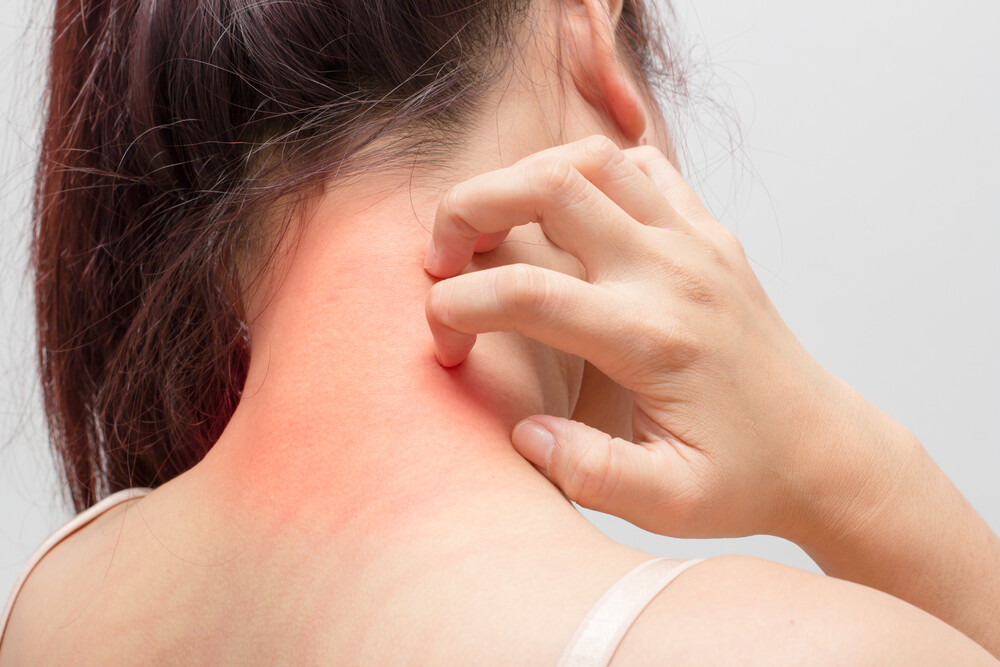In the case of a skin allergy, allergic reactions occur at the site of the skin that comes into contact with the allergen. Here you can find out symptoms and what helps.
What is a skin allergy?
A skin allergy is a so-called allergic eczema, i.e. when the skin comes into contact with the respective allergen, it reacts with symptoms such as redness and itching. Common triggers of skin allergies are, for example, certain cosmetics or perfumes, but also metals such as nickel. In order to avoid allergic reactions, it is best to avoid these substances. For example, ointments containing cortisone are used to treat skin reactions.
Causes of skin allergies
The following substances increasingly trigger allergic reactions:
- Nickel
- Cobalt
- Perfume
- Oils
- Latex
- Cosmetics containing, for example, certain fragrances and preservatives
Symptoms of skin allergies
Primarily skin reactions occur on contact with substances that trigger the allergy. Typical symptoms are for example:
- Redness
- Swelling
- Itching
- Wetting, burning or flaking of the skin
- Nodules and blisters (later)
The symptoms of the allergy do not always appear immediately after contact with the trigger, but often with a time delay. In most cases a skin allergy causes symptoms within 48 to 72 hours. Therefore, it is not always easy to say what caused the allergic reaction in the first place. An allergy diary can help to narrow down possible triggers: It records when the symptoms occurred and, if necessary, the substances that were used and avoided. The doctor can then determine the possible causes with an appropriate allergy test.
Treatment: What helps against a skin allergy?
If you know what you are allergic to, the easiest way to avoid the particular trigger is to avoid it in order to reduce the risk of allergic reactions. For example, if you are allergic to certain fragrances, you should always read the package insert of a product before buying it. If the skin is generally sensitive, it is important to protect it from harmful influences. This can be helped, for example:
- Clothing made of skin-friendly and breathable materials such as silk or cotton
- Skin care products with so-called refatting substances
- General protection of the skin against cold and moisture
If an allergic reaction does occur, low-dose ointments containing cortisone can help. They alleviate the typical inflammatory complaints.
A skin allergy is not always to blame
Skin rashes cannot always be attributed to a skin allergy. There are also other possible diseases that can trigger symptoms such as swelling and itching. These include, for example, neurodermatitis, rosacea or a sun allergy.

